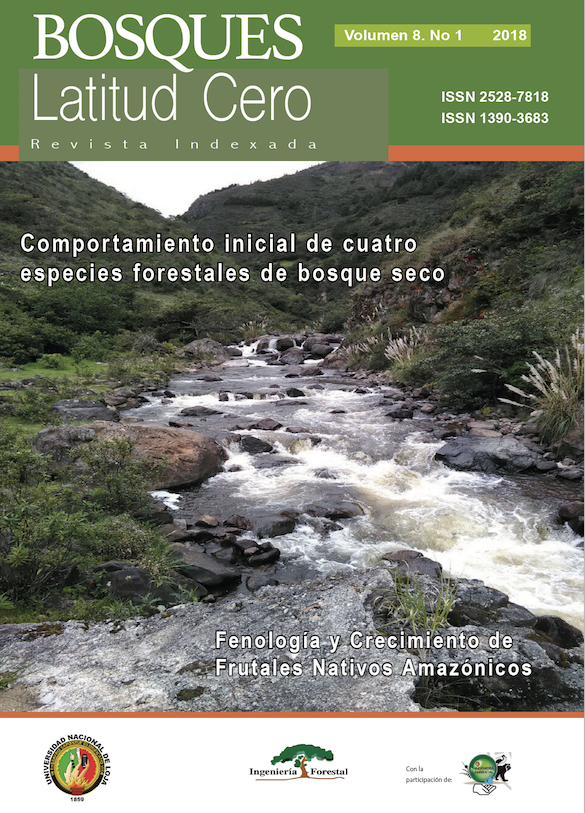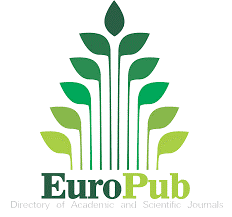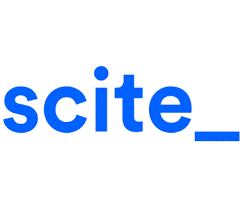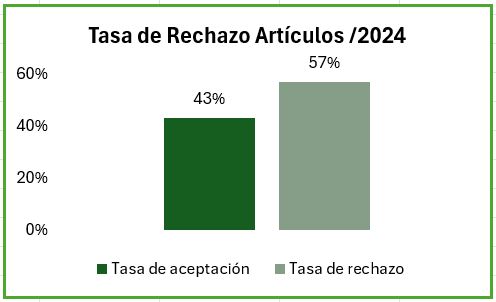Identification of threats, management strategies and conservation of ecosystem services in sub-basin "La Suiza" Chiapas Mexico
Keywords:
ecosystem services, forest, threat, strategies, conservation, communityAbstract
The sub-basin "La Suiza" due to its geographical and political location presents a high ran-ge of generation of ecosystem services. The purpose of the study was to: Identify spatially the threats that put at risk the generation of ecosystem services, and identify possible strategies for their management and conservation in the sub-basin "La Suiza". The study found 12 threats that jeopardize the generation of ecosystem services, identifying as the main threat the topography of the terrain with slopes greater than 30 % inclination equivalent to 2825.04 hectares (46 %) of the total territory of the sub-basin "La Suiza". Likewise, it was found that there was a significant as-sociation between type of threats and types of producers the p-value of the Chi square G2 statistic is = 0,0001 lower than the significance level α = 0,05. On the other hand, it was found that the payment for environmental services (PSA) stood out as a possible strategy for the conservation of ecosystem services in the sub-basin.References
Balvanera, P., H. Cotler (2009). Estado y tendencias de los servicios ecosistémicos, en Capital natural de México, vol. II: Estado de conservación y tendencias de cambio. Conabio, México,
pp. 185-245.
Cárdenas, M; Choquevillca, P; Saavedra, J,P; Torrico, G; Espinoza J. (2008). Construcción de Mapas de Riesgo. Criterios metodológicos. 1. ed. La Paz, BO. 50 p.
Centro Agronómico Tropical de Investigación y Enseñanza. (CATIE). (1999). Redacción de referencias bibliográficas. Normas técnicas del IICA y CATIE/ Instituto Interamericano de Cooperación para la Agricultura. Centro Agronómico Tropical de Investigación y Enseñanza. 4 ed. Turrialba. CR. Biblioteca Conmemorativa Orton. 1999. 40 p
Centro Nacional de Prevención de Desastres. (CENAPRE). (2001). Reseña Histórica de Incendios en México. Coyoacán. MX. 2001. 31p
Comisión Nacional Plan Turquino. (CNPT) (2003). Suelos Usos Conservación y Mejoramiento.
Manual técnico para las actividades agropecuarias y forestales en las montañas. Agrinfor 2003. La Habana. CU. CP10600. 31p
Conservation International. 2004. Conserving Earth’s living heritage: A proposed framework for designing biodiversity conservation strategies. Conservation International.
Cubero, F. (2001). Clave de bolsillo para determinar la capacidad de uso de las tierras.1° ed. San José. CR. ACCS. MAG. ARAUCARIA. 200. 19 p
Di Rienzo, J; Casanoves, F; González, L; Tablada, E; Díaz, M; Robledo, C; Balzarini, M. (2008). Estadística para las Ciencias Agropecuarias. 2008. 7 ed. Córdova, AR. Brujas. 356 p.
Gómez, M. (2012). Amenazas de los servicios ecosistémicos (Entrevista). Propiedad privada de La Candelaria y el Triunfo. Chipas, MX. Obtenido de: http://www.nodo50.org/worldwatch/
ww/portadas/bosques.htm
Kristensen, P.J., C.J. Rader. (2001). The strategic management approach: Practical planning for development managers. Conservation International, Washington, D.C.
Maginnis, S; Méndez, J; Davies, J. (1996). Manual para el Manejo de Bosques Pequeños de Bosque Húmedo Tropical (con Especial Referencia a la Zona Norte de Costa Rica).
March, I.J., M.A. Carvajal, R.M. Vidal, J.E. San Román, G. Ruiz et al. (2009). Planificación y desarrollo de estrategias para la conservación de la biodiversidad, en Capital natural de México,
vol. II: Estado de conservación y tendencias de cambio. Conabio, México, pp. 545-573.
Miller, K.R., y M.S. Lanou. (1995). Planificación nacional de la biodiversidad: pautas basadas en experiencias previas alrededor del mundo. World Resources Institute, Washington, D.C. -Programa de las Naciones Unidas para el Medio Ambiente, Unión Mundial para la Naturaleza.
Mora, J; García, L; Sol, L. (2008). Ciencia de la Tierra para la Sociedad. Sequia. UNAM. MX. 2008. 3p
Pacheco, P. (2004). What lies behind decentralization? Forest, powers and actors in lowlands Bolivia.
European Journal of Development Research 16(1):90-109.
Santamarta, J. (2001). La Situación Actual de los Bosques en el Mundo. Disponible (en línea).
USEPA. (1983). Results of the Nationwide Urban Runoff Program. Volume 1 - Final Report. Water Planning Division. Washington, D.C. EE.UU.
Downloads
Published
How to Cite
Issue
Section
License
Copyright (c) 2018 Bosques Latitud Cero

This work is licensed under a Creative Commons Attribution-NonCommercial-ShareAlike 4.0 International License.
This work is published under the Creative Commons Attribution-NonCommercial-ShareAlike 4.0 International (CC BY-NC-SA 4.0) license. This means that users may copy, distribute, and adapt the content, provided that proper credit is given to the authors and the journal. Commercial use of the material is not permitted. Additionally, any derivative work must be distributed under the same license. This license ensures open access to knowledge, promoting the dissemination and reuse of published works for non-commercial purposes, respecting authorship, and ensuring the free circulation of content under fair terms.





























